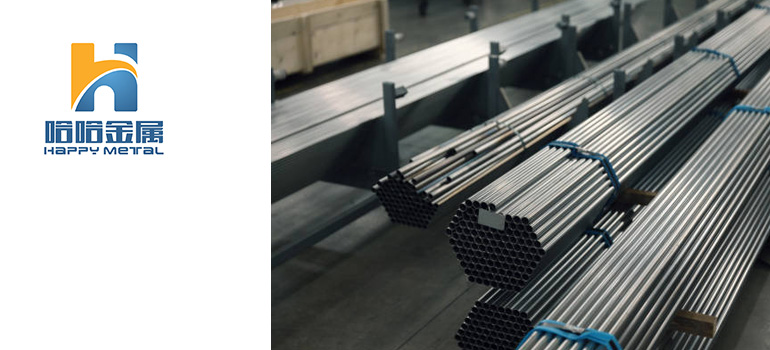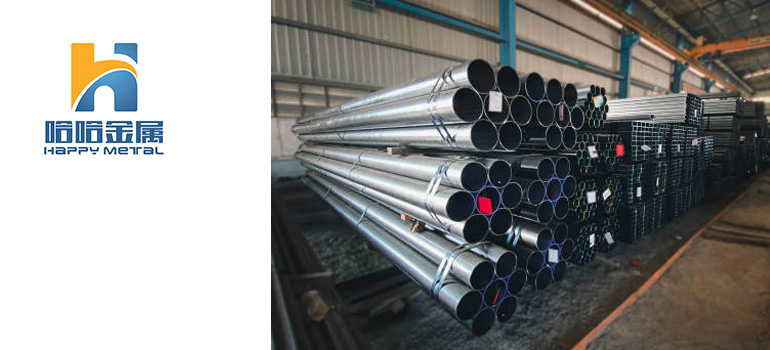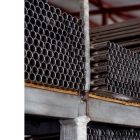Summary:
Ultimate Guide to Stainless Steel Pipe Alloys: Key Features and Uses
What are Stainless Steel Pipe Alloys
Importance of Stainless Steel Pipe Alloys in Various Industries
Benefits of Choosing Stainless Steel Pipe Alloys
Key Features of Stainless Steel Pipe Alloys
Uses and Applications of Stainless Steel Pipe Alloys
Factors to Consider When Choosing Stainless Steel Pipe Alloys
What are Stainless Steel Pipe Alloys?
Stainless steel pipe alloys refer to a group of metallic materials primarily composed of iron and a minimum of 10.5% chromium, along with varying amounts of other alloying elements such as nickel, molybdenum, titanium, and copper. These alloys are specifically designed to exhibit excellent resistance to corrosion, making them ideal for applications where exposure to moisture, chemicals, or harsh environments is common.
The defining characteristic of stainless steel pipe alloys is their ability to resist oxidation and corrosion, which is achieved through the formation of a passive chromium oxide layer on the surface of the material. This layer acts as a barrier that prevents further oxidation and deterioration of the metal underneath. As a result, stainless steel pipe alloys maintain their integrity and aesthetic appearance over extended periods, even in challenging conditions.
Beyond corrosion resistance, stainless steel pipe alloys are valued for their mechanical properties, including strength, ductility, and toughness. They can withstand high temperatures, pressure, and mechanical stress without significant deformation or degradation, making them suitable for a wide range of applications across industries such as construction, automotive, aerospace, chemical processing, and more.
Overall, stainless steel pipe alloys are versatile materials known for their durability, reliability, and longevity, making them indispensable in modern manufacturing and infrastructure projects where performance and longevity are critical factors.
Importance of Stainless Steel Pipe Alloys in Various Industries
Stainless steel pipe alloys play a crucial role in numerous industries due to their unique combination of properties and benefits. Here’s why they are indispensable across various sectors:
Corrosion Resistance: One of the primary reasons stainless steel pipe alloys are vital in industries like marine, chemical processing, and oil and gas is their exceptional resistance to corrosion. They can withstand exposure to corrosive chemicals, saltwater, and atmospheric conditions without rusting or deteriorating, ensuring long-term reliability and safety.
Hygiene and Sanitation: Industries such as food and beverage, pharmaceuticals, and healthcare rely on stainless steel pipe alloys due to their hygienic properties. These alloys are easy to clean and sanitize, making them suitable for environments where cleanliness and contamination control are critical.
Strength and Durability: Stainless steel pipe alloys are known for their high strength-to-weight ratio and durability. They can withstand high pressures, mechanical stress, and temperature extremes without deforming or weakening, making them ideal for structural and heavy-duty applications in construction, infrastructure, and transportation.
Aesthetic Appeal: Beyond their functional properties, stainless steel pipe alloys are valued for their aesthetic appearance. They offer a modern, sleek, and polished finish that enhances the visual appeal of architectural structures, interior design elements, and consumer products.
Sustainability: Stainless steel is a highly sustainable material due to its recyclability and long lifecycle. Industries focused on sustainability, such as renewable energy, green building construction, and waste management, prefer stainless steel pipe alloys for their environmental benefits and minimal impact on the ecosystem.
Versatility and Adaptability: Stainless steel pipe alloys come in various grades and compositions tailored to specific industry requirements. They can be fabricated into different shapes, sizes, and configurations to meet diverse application needs, from precision engineering components to large-scale industrial piping systems.
In summary, stainless steel pipe alloys are essential in various industries because they offer unmatched corrosion resistance, durability, hygiene, aesthetic appeal, sustainability, and versatility. Their ability to maintain performance in harsh environments and diverse applications makes them a preferred choice across global industries seeking reliable and high-performance materials.
Benefits of Choosing Stainless Steel Pipe Alloys
Choosing stainless steel pipe alloys offers a wide range of benefits across different applications and industries. Here are some key advantages:
Corrosion Resistance: Stainless steel pipe alloys are renowned for their exceptional resistance to corrosion. They form a passive oxide layer on their surface, which protects them from rust, stains, and corrosion in harsh environments, including marine, chemical processing, and industrial settings.
Strength and Durability: These alloys exhibit high strength and durability, making them suitable for applications requiring structural integrity and reliability under high pressures, temperature extremes, and mechanical stress. They maintain their performance and appearance over long periods, reducing maintenance costs and downtime.
Hygienic Properties: Stainless steel pipe alloys are easy to clean and sanitize, making them ideal for industries like food and beverage processing, pharmaceuticals, and healthcare where hygiene is critical. Their smooth, non-porous surface inhibits bacterial growth and contamination, ensuring product purity and safety.
Aesthetic Appeal: Stainless steel pipe alloys offer a modern, attractive appearance with a sleek finish. They enhance the aesthetic appeal of architectural structures, interior designs, and consumer products, providing both functionality and visual appeal.
Temperature Resistance: These alloys maintain their mechanical properties at both high and low temperatures, making them suitable for applications in extreme environments such as aerospace, automotive, and industrial manufacturing processes.
Longevity and Sustainability: Stainless steel pipe alloys have a long lifecycle and are highly recyclable, making them environmentally sustainable materials. They contribute to green building certifications and support sustainable development goals by minimizing waste and resource consumption.
Versatility: Available in various grades and configurations, stainless steel pipe alloys can be customized to meet specific application requirements. They are adaptable to diverse industries, including construction, energy, transportation, and infrastructure, offering flexibility in design and installation.
In conclusion, the benefits of choosing stainless steel pipe alloys include superior corrosion resistance, strength, durability, hygiene, aesthetic appeal, temperature resistance, sustainability, and versatility. These attributes make them a preferred choice for industries seeking reliable, high-performance materials that enhance operational efficiency and ensure long-term performance.
Key Features of Stainless Steel Pipe Alloys

Stainless steel pipe alloys are distinguished by several key features that make them essential in various industries. Here are the primary features:
Corrosion Resistance: Stainless steel pipe alloys are renowned for their excellent resistance to corrosion. This resistance is primarily due to the presence of chromium, which forms a passive oxide layer on the surface of the steel. This oxide layer protects the material from oxidation and corrosion, making stainless steel suitable for use in corrosive environments such as marine, chemical processing, and outdoor applications.
Strength and Durability: These alloys exhibit high strength and durability, which allows them to withstand high pressures, temperature variations, and mechanical stresses. This makes stainless steel pipe alloys suitable for applications where structural integrity and reliability are crucial, such as in construction, automotive, and industrial equipment.
Hygienic Properties: Stainless steel pipe alloys have smooth, non-porous surfaces that are easy to clean and sanitize. This property makes them ideal for applications in industries such as food and beverage processing, pharmaceuticals, and healthcare, where cleanliness and hygiene standards are stringent.
Heat Resistance: Stainless steel pipe alloys maintain their mechanical properties at both high and low temperatures. They exhibit good thermal conductivity and resistance to thermal expansion and contraction, making them suitable for applications where temperature variations are significant, such as in heating systems and industrial processes.
Versatility: Available in various grades and configurations, stainless steel pipe alloys offer versatility in terms of mechanical properties, corrosion resistance, and aesthetic appearance. They can be customized to meet specific application requirements, making them adaptable to a wide range of industries and applications.
Aesthetic Appeal: Stainless steel pipe alloys have a sleek, modern appearance with a smooth surface finish. This aesthetic appeal makes them popular in architectural and interior design applications, where both functionality and visual appeal are important considerations.
Environmental Sustainability: Stainless steel is a sustainable material choice due to its recyclability and long service life. It contributes to environmental sustainability by reducing resource consumption and waste generation, making it a preferred material in green building projects and sustainable development initiatives.
In summary, the key features of stainless steel pipe alloys include corrosion resistance, strength, durability, hygienic properties, heat resistance, versatility, aesthetic appeal, and environmental sustainability. These features collectively make stainless steel pipe alloys indispensable in various industries where performance, reliability, and longevity are paramount considerations.
Uses and Applications of Stainless Steel Pipe Alloys
Stainless steel pipe alloys find widespread use across diverse industries due to their unique properties and benefits. Here are some key uses and applications:
Construction and Architecture:
Structural Components: Stainless steel pipe alloys are used in construction for structural components such as beams, columns, and support structures due to their strength, durability, and aesthetic appeal.
Facade Cladding: They are employed in architectural facades and cladding systems to provide a modern and corrosion-resistant finish that enhances building aesthetics.
Industrial Manufacturing:
Piping Systems: Stainless steel pipe alloys are used extensively in industrial piping systems for transporting fluids and gases. They offer corrosion resistance, durability, and reliability, making them suitable for harsh environments in industries such as chemical processing, oil and gas, and wastewater treatment.
Process Equipment: They are used to fabricate process equipment such as heat exchangers, pressure vessels, and storage tanks due to their ability to withstand high temperatures, pressure, and corrosive substances.
Automotive and Aerospace:
Exhaust Systems: Stainless steel pipe alloys are used in automotive exhaust systems due to their heat resistance and corrosion resistance, which help in withstanding high temperatures and exposure to exhaust gases.
Aircraft Components: They are used in aircraft structures, hydraulic systems, and engine components where lightweight materials with high strength and corrosion resistance are required.
Food and Beverage Processing:
Hygienic Piping: Stainless steel pipe alloys are preferred in food and beverage processing industries due to their hygienic properties. They have smooth surfaces that are easy to clean and sanitize, minimizing the risk of contamination.
Brewing and Dairy Equipment: They are used in brewing and dairy equipment such as tanks, pipelines, and processing vessels where cleanliness and product purity are critical.
Medical and Pharmaceutical:
Medical Equipment: Stainless steel pipe alloys are used in the manufacture of medical devices and equipment due to their biocompatibility, corrosion resistance, and ease of sterilization.
Pharmaceutical Processing: They are used in pharmaceutical manufacturing for processing and transporting pharmaceutical ingredients and products under sterile conditions.
Water and Environmental Applications:
Water Treatment: Stainless steel pipe alloys are used in water treatment plants and systems for conveying treated water due to their resistance to corrosion and ability to withstand varying water chemistries.
Environmental Protection: They are employed in environmental applications such as wastewater treatment and desalination plants where durability and resistance to harsh chemicals are essential.
Energy and Utilities:
Power Generation: Stainless steel pipe alloys are used in power plants for conveying steam, water, and gases in boiler systems and heat exchangers due to their high temperature and corrosion resistance.
Renewable Energy: They are used in renewable energy systems such as solar thermal plants and geothermal energy systems for their durability and resistance to environmental conditions.
In conclusion, stainless steel pipe alloys are versatile materials that play a critical role in various industries and applications ranging from construction and manufacturing to food processing, healthcare, and environmental protection. Their combination of strength, corrosion resistance, hygienic properties, and durability makes them indispensable in modern infrastructure and industrial processes worldwide.
Factors to Consider When Choosing Stainless Steel Pipe Alloys
When selecting stainless steel pipe alloys for a specific application, several key factors should be taken into consideration to ensure optimal performance and longevity. These factors include:
Corrosion Resistance: Assess the environmental conditions where the stainless steel pipe will be used. Consider the type and concentration of corrosive substances present (e.g., chemicals, saltwater, atmospheric conditions) to select an alloy with adequate corrosion resistance. Higher chromium content generally improves corrosion resistance.
Mechanical Properties: Evaluate the mechanical requirements such as strength, ductility, and toughness needed for the application. Different grades of stainless steel offer varying levels of mechanical properties. For example, austenitic stainless steels (such as 304 and 316 grades) are known for their excellent toughness and formability, while duplex stainless steels provide higher strength and corrosion resistance.
Temperature Resistance: Determine the operating temperature range of the application. Stainless steel alloys exhibit different temperature resistance based on their composition. For high-temperature applications, consider alloys with higher chromium and nickel content or specialized heat-resistant stainless steels.
Fabrication and Formability: Consider the ease of fabrication, welding, and forming required for the specific design and installation needs. Some stainless steel alloys are easier to weld and form than others, depending on their chemical composition and metallurgical structure.
Cost Considerations: Evaluate the overall lifecycle cost, including initial purchase price, maintenance requirements, and potential downtime costs. While higher alloyed grades may offer superior performance, they can also come with higher initial costs. Balancing performance requirements with budget constraints is crucial.
Environment and Application Specifics: Take into account the specific environment and application conditions, such as exposure to abrasion, impact, vibration, and cyclic loading. Choose a stainless steel alloy that can withstand these conditions without compromising performance or integrity.
Regulatory and Certification Requirements: Ensure compliance with industry standards, regulations, and certifications applicable to your industry or region. Certain applications, such as those in food processing, pharmaceuticals, or aerospace, may have strict material requirements and certifications (e.g., FDA compliance, ASME standards).
Long-Term Performance: Consider the expected service life and durability required for the application. Stainless steel pipe alloys are known for their longevity and resistance to degradation over time. Choosing a high-quality alloy suitable for the application’s expected lifespan can minimize maintenance and replacement costs.
By carefully evaluating these factors and consulting with materials experts or suppliers, you can select the most appropriate stainless steel pipe alloy that meets your specific performance, durability, and cost requirements for the intended application.




